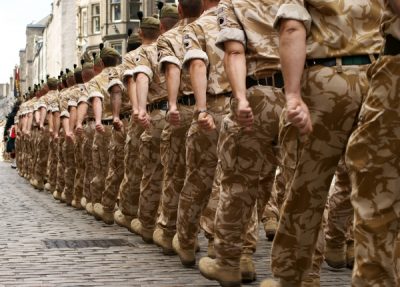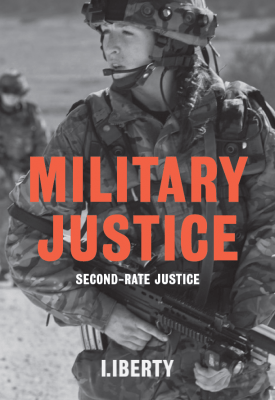human rights
The death and inquest of Geoff Gray

The third re-inquest in relation to the four Deepcut deaths of young soldiers has returned a verdict of suicide despite lack of proof and illustrates again the imbalance of power between the institutions of the military and the individual.
The case for unionising the army

With the military's complaints system being called 'fundamentally dysfunctional' and its justice system 'second rate', we look at calls for expanding the rights of military personnel and allowing self-organisation through unionisation.
Issues relating to Service Complaints system and the youngest armed forces personnel
May 2019
In this written submission to the Defence Committee's inquiry into the work of the Service Complaints Ombudsman, we focus on how issues with the complaints system may affect the youngest serving personnel in the armed forces, particularly those under 18 years old, and recommend that the youngest members of the armed forces are considered as a distinct group in relation to the functioning of the service complaints system.
Liberty Soldier’s Rights campaign
The human rights organisation Liberty campaign on Soldier's Rights and have addressed a number of substantial concerns with the military justice system in recent years.
Historical allegations: fact vs fiction

With the recent reporting about relaxed rules of engagement in Iraq and Afghanistan, we take a quick look at some of the key questions around the allegations of abuse and killing by UK troops.
Personnel are being failed by the military justice system

We welcome Liberty's Second Rate Justice report and the launch of their new Human Rights Helpline for the UK Armed Forces.
Submission to the Human Rights and the Scottish Parliament inquiry
April 2018

This submission made by ForcesWatch and Quakers in Scotland to the Scottish Parliament's human rights inquiry details our concerns around the need for regulation and transparent accountability of military activities in schools, the lack of education about peace and human rights, and the continued recruitment of children into the UK armed forces.
Harrogate abuse court martials
20/03/2018
On the day that the Harrogate abuse court martials were dropped and the press was allowed to comment after reporting restrictions were lifted, there was coverage in almost all the major news outlets. Our comments, and those of partner organisations, were also reported.
Army abuse case failings: it’s time for change in the military justice system
Three cases involving over 40 claimants and 16 Army instructors have collapsed, raising a number of serious concerns about failings within the military justice system. As a result, serious allegations of abuse against very young recruits have not been tested. We call for changes to the system and question whether a military environment where aggression is fostered will ever be condusive to the wellbeing of young recruits.
Answering difficult questions about militarism
February 2017

With the presence of the military in public spaces increasing and a high level of popularity for the armed forces, it is not always easy to respond to challenging questions that people pose in when faced with concerns expressed about militarism. In this briefing we explore some responses to questions about how much the armed forces should be involved in our everyday lives, how they relate to young people, and the effectiveness and consequences of military action.
